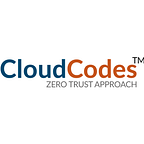Reaching Compliance With CASB Solutions For Enterprise Data Security
Reaching Compliance With CASB
Cloud offers a wide range of benefits like mobility, scalability, flexibility, and convenience. Hence, enterprises must migrate to cloud platforms to increase their productivity While cloud platforms ooffer a host of benefits, comes their perils too, the topmost being data security! Also, additionally, enterprises face the challenge of regulatory compliance. Cloud has usage benefits but has also data leakage issues, Due to that, it can be dealt with shared responsibility by reaching compliance with CASB solutions. Organizations should see to it that their focus doesn’t remain solely concentrated only on the technological aspect of cloud service deployment that the regulatory compliance part gets pushed to the background. Migrating to the cloud is not a single easy step. After setting up cloud services, organizations need to impart training to their employees on data use, which is itself a mammoth task. Law complexities and constant upgrades become overwhelming and a tough task to abide by. Even though the costs rise, it is for the advantage of the organizations, their clients, and employees that migrating to the cloud makes sense and helps to store sensitive data benefitting them from the safeguards of the law.
Regulatory Compliance Dealt With Securing Data On Cloud
A company has to obey certain rules, regulations, and guidelines that pertain to business when it comes to the domain of regulatory compliance. When it is the case of cloud services and global data, the laws enforced mustn’t be just limited to that organization alone but also to the countries where their customers reside. Here, take a few examples of it-
- Health Insurance Portability and Accountability Act of 1996 (HIPAA): This act pertains to the standardization of electronic medical records and this implies that data privacy and patient confidentiality hhaveto be maintained by following certain security mechanisms.
- Personally Identifiable Information (PII): This relates to information potentially identifying an individual. This information that distinguishes one person from another has to be kept anonymous and cannot be shared without consent from that individual.
- Payment Card Industry Data Security Standard (PCI DSS): This primarily targets the electronic payment industry and is a set of policies to safeguard cash card transactions and their information.
- Federal Information Security Management Act (FISMA): FISMA is aimed at federal agencies and it requires that they conduct annual audits of their information security programs so that the data is safe within acceptable levels.
Perks of Having A Shared Responsibility
If the sensitive data of the customers gets stolen from the database of an enterprise, then the responsibility lies in that enterprise. This ‘security breach’ word is surely a matter of worry for all the enterprises that store data and even the large organizations that haven’t been spared from being hacked and thus being among the names in the data breach statistics. For sure, the security of the cloud platform is with the service vendors. It is their responsibility to ensure that the storage, networking, infrastructure, database, and availability integrate seamlessly and also remain secure. But on the other side, the customer has to be equally responsible for uploaded data, operating systems, network traffic protection, etc. So, in between all these, on whom does the onus of regulatory compliance lie? As an enterprise, it is responsible that incorporates a private cloud for security and deploying tools in the proper place to integrate compliance audits. It has to wisely choose a cloud vendor that can meet its compliance with CASB modes and provide efficient data security. Mapping and assisting in compliance requirements should be dealt with first in the contracts before the migrations start. There are a variety of cloud computing security solutions that will address the security concerns of the enterprise as well as help them in compliance with maturity before migrating to the cloud.
How Can The Compliance With CASB Be Achieved?
About the gaps in the security systems of organizations, Cloud Access Security Brokers work as the missing links, filling these gaps with their CASB solutions developed to strengthen the security gates of these enterprises and help them in achieving compliance with CASB.
Even though cloud services offer myriad benefits, enterprises often face the challenge of data security in a shared environment and of meeting the international security compliance standards. All these can be dealt with by shared responsibility with cloud vendors and having efficient cloud security tools like CASB solutions to thwart cloud security threats as well as to rally the compliance requirements.
